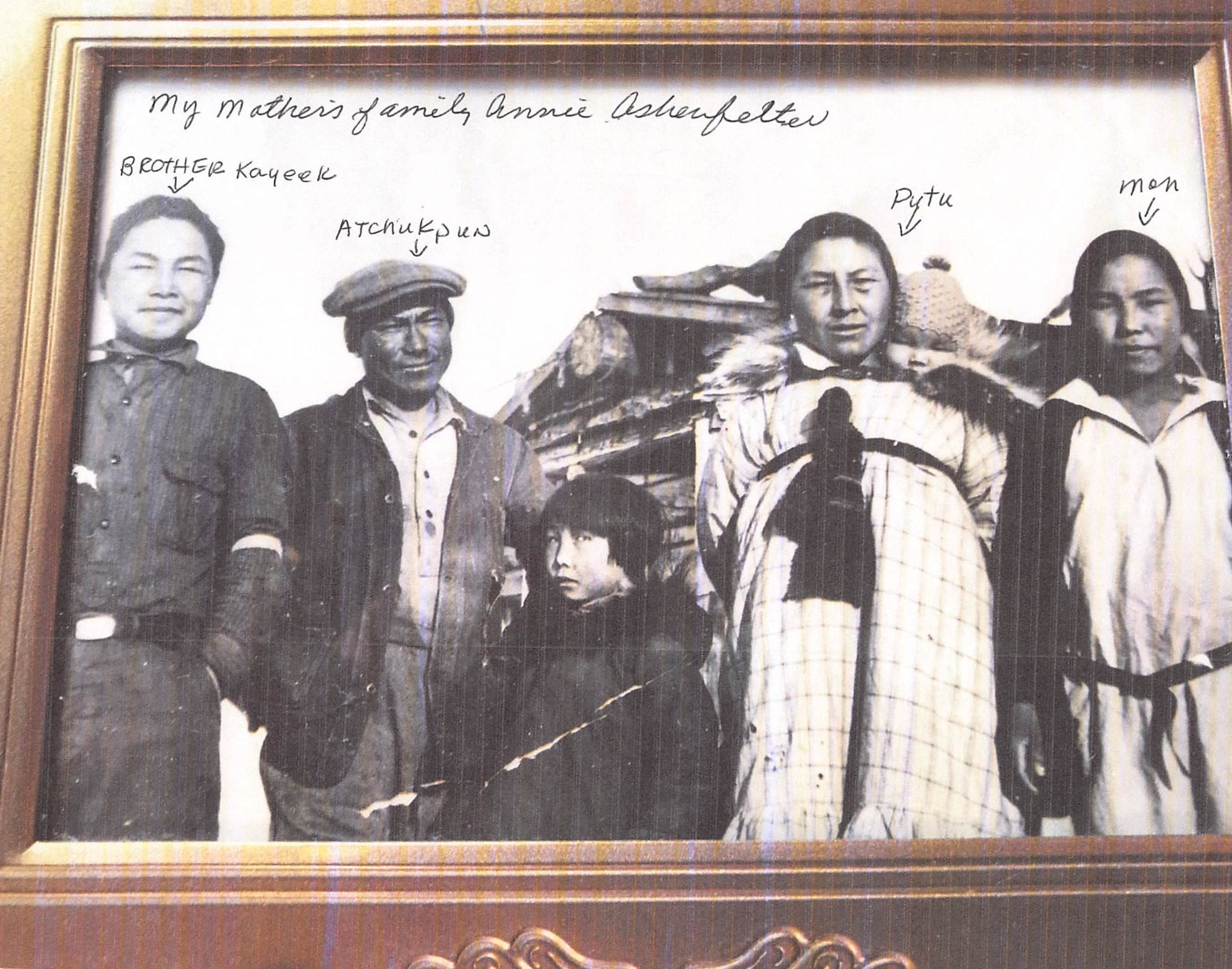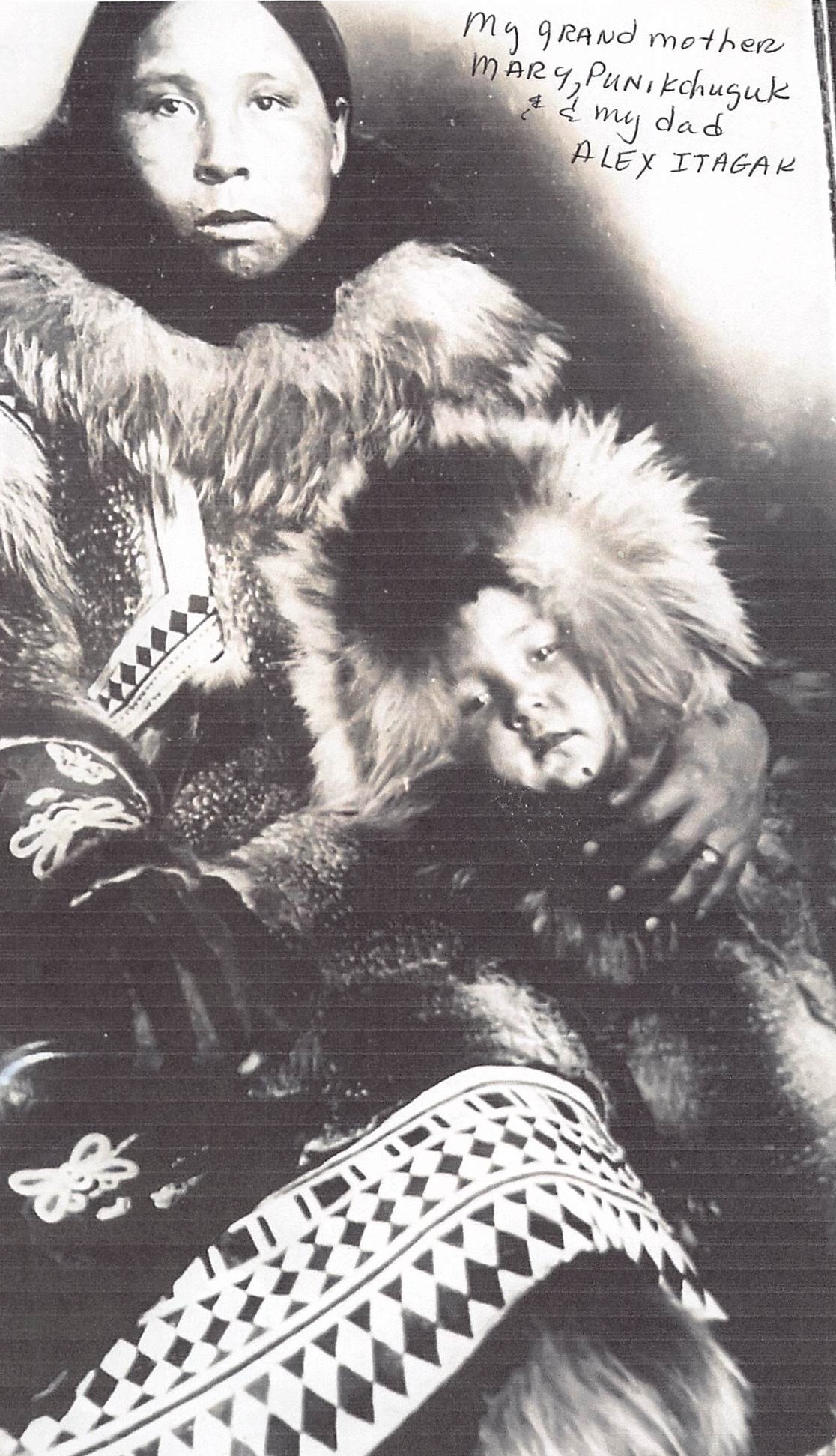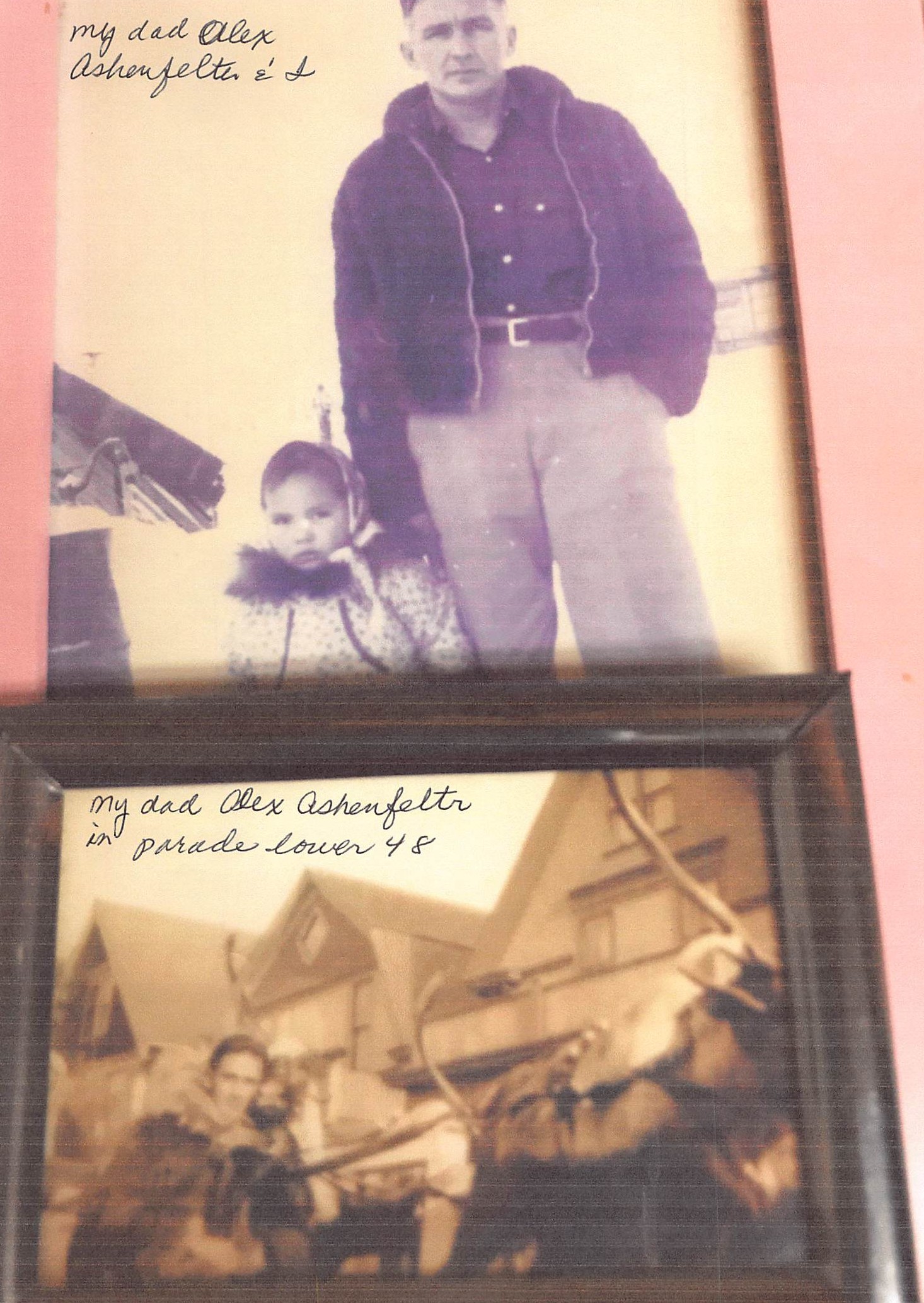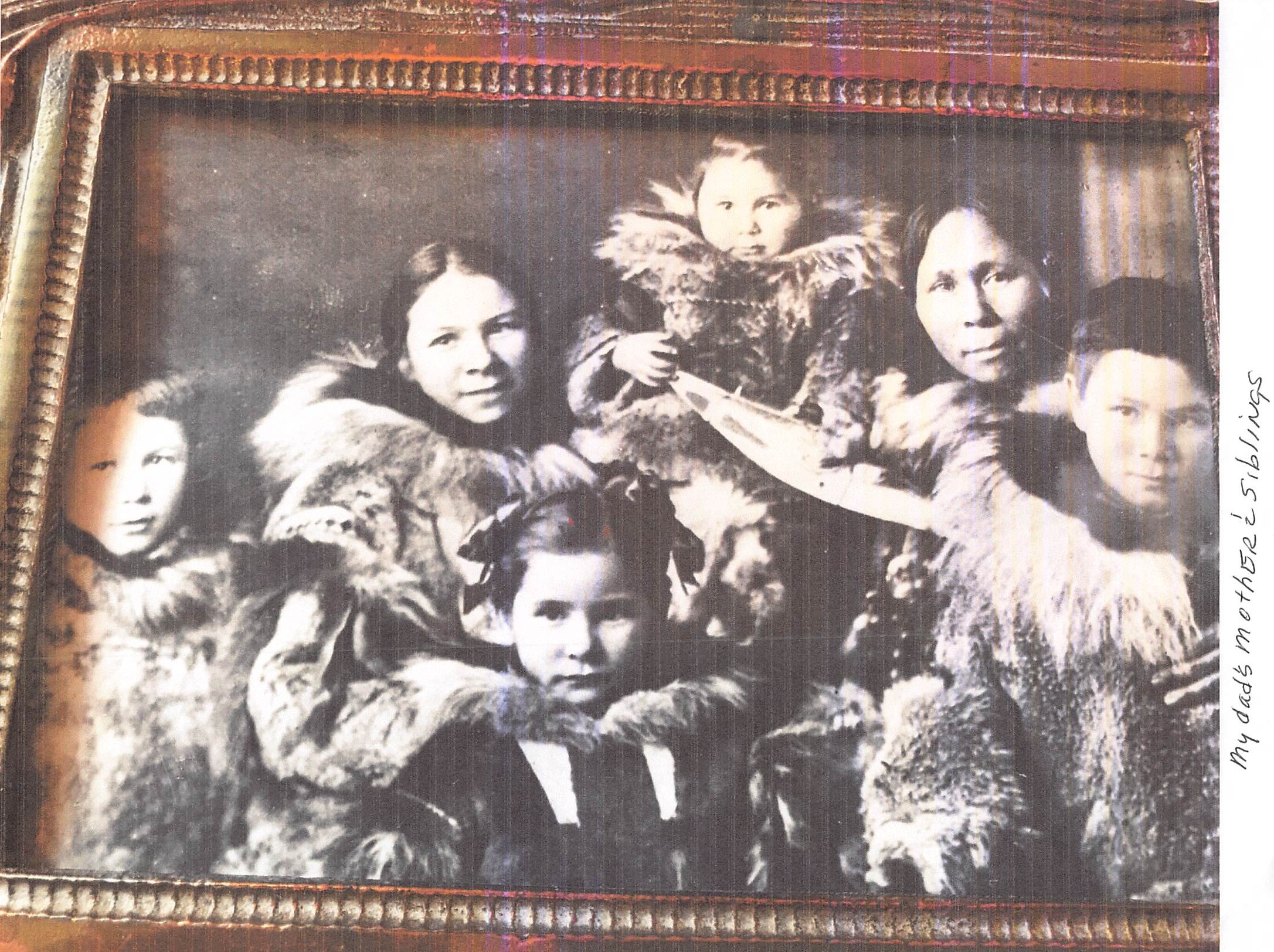Village Life Story: Memories of Natchirvik (White Mountain) and lgaluinmiut Fish River Tribe
by Putu Winona (Tula Ashenfelter) Huffman
BSNC is honored to share this heartfelt Village Life Story from shareholder Putu Winona (Tula Ashenfelter) Huffman. Her reflections on growing up in Natchirvik (White Mountain) and the rich heritage of the Igaluinmiut Fish River Tribe offer a meaningful glimpse into a way of life shaped by tradition, family, and deep connection to the land.
Quyaana, Putu, for preserving and sharing your memories for future generations.

I was born and raised in White Mountain, Alaska, a village nestled along the banks of the Fish River, about 75 miles northeast of Nome on the Seward Peninsula. White Mountain is one of the most beautiful places I’ve ever seen, and I’ve traveled extensively across the globe with my husband, who dedicated 32 years to serving in the United States Air Force. Together, we have four children and fourteen grandchildren all living in the lower 48, except for one son who resides in White Mountain, with his four girls. My brother said the day I was born, my family was leaving our fish camp “Mitchuk,” located about 12 miles upriver from White Mountain. It was a stormy day with high winds and flooding. I was born shortly after they arrived in White Mountain. I attended high school at Mt. Edgecumbe High School in Sitka, located in southeastern Alaska. Until then, I had never ventured beyond Nome, so moving to Sitka was quite traumatic for me, I was very homesick. I returned home each summer. After high school, I moved to Anchorage to attend Alaska Business College, where I met my husband, Ron, who was stationed at Elmendorf AFB in Anchorage. We traveled and lived at various Air Force bases across the lower 48 and spent three years at Torrejon AFB, Madrid, Spain.

I had seven brothers and two sisters: four older and five younger. There was a six year difference between my older brother and I so by the time I was about twelve years of age, my older brothers and sister were in boarding schools or living in Nome. I grew up as the eldest of my five younger brothers and sisters. My paternal grandmother lived with us until she passed away. She had a great influence on my life, with her quiet gentle ways and her faith in God. She couldn’t read or write so she would often ask me to read the bible to her or write letters for her, mostly to her daughter, my aunt Mary Ellen who lived in Seattle Washington. She would always sign her letters off with lots of koonicks (kisses) and love. I remember hearing her praying in our lnupiaq language every night before we went to sleep. Before her eyesight got bad she was an expert skin sewer, she made beautiful fur parkas, mittens, gloves and mukluks. Her dad Apodrukpuk was a tall man.
I have deep connections to the place I was born and raised, my heart will always be there. I love being out in the country picking berries, fishing, etc. When I am feeling tired I always get a boost if I know I’ll be outdoors doing the things that are ingrained in me and my DNA, gathering the foods I love to eat. After a day of doing things I love to do, I enjoy a picnic with a campfire going. As a child at times my mom and I would walk to our favorite berry picking spots behind White Mountain hill to pick blueberries. She’d pack some dried fish, seal oil, and water to make tea. We’d build a fire to heat water for tea, then enjoy our meal.
I’ve often heard that our lives are shaped by those around us. I consider myself fortunate to have been raised in White Mountain among the Elders and peers who surrounded me. I held our Elders in great respect, and those I grew up with were like siblings to me. Before the days of Sears Roebuck and Montgomery Ward catalogs, my mom crafted most of our clothing. She was an exceptional seamstress, sewing our parkas, mukluks, fur mittens, and summer cloth parkas (kuspuks). My mother excelled in many things: sewing, knitting, crocheting, cooking, baking, and she was an excellent alto singing in the church choir. Her parents were William and Edna Gregory, Atchukpun and Putu. My Eskimo name is Putu after my grandmother. My mother’s grandmother was Kumouyuk.

My dad was a carpenter, and his work was seasonal. In spring, he would venture to Fairbanks or other communities in Alaska for employment, returning to White Mountain in late fall. I could write a book solely about his life, as it was filled with interesting tales. He recounts bumming gas to travel around the lower 48 with friends. He even won the title of West Coast champion in San Francisco as a middleweight boxer, earning the nickname “the Eskimo Kid.” He was acquainted with the famous boxer Jack Dempsey and had a photograph taken with him. His family owned reindeer trained to pull a sleigh, and he used to bring them along to the lower 48 for parades and events.
Our mode of transportation was by dog sled in the winter and boat and motor in the summer. Also, we didn’t have electricity or running water. We packed water from the river, and in the summer we had a rain barrel to collect water. One vivid memory of my dad remains, how he trained our dogs to know their assigned place as a team before hunting. He would prepare the sled, lay out the harnesses so that when he released the dogs from their individual dog houses they knew to go to their correct places. Upon his return from hunting, he would let them off the harnesses, and they would go directly back to their dog houses.
My dad was an excellent cook, too. Every winter, he bought a reindeer carcass, cutting it into roasts and steaks, but most of it ended up in delicious stews. Breakfast always consisted of sourdough pancakes, made in a large cast-iron skillet by either my mother or father, accompanied by oatmeal or cornmeal. We had one small grocery store with some clothing items and dry goods like flour, sugar, and canned goods. My mom also baked 12-14 loaves of bread at a time for our big family and made delicious, sweet rolls with icing and a jelly roll cake thrown together without any measurements, somehow turning out better than any cake I’ve ever tasted.

Most of our summers were dedicated to gathering food for the winter. We picked greens in the spring, dried enough salmon to sustain both ourselves and our dogs and collected berries to store in wooden barrels for the winter. Our summers were largely spent at our fish camp at Mitchuk. We didn’t have the money to buy gas to travel up and down the river like people do today. Instead, when we ventured to our fish camp or went berry picking, we often camped out until the fish were dried or our wooden barrels were full of berries.
The Fish River was truly special. It not only provided nearly everything that sustained our lives, but it also offered countless hours of recreation. On hot summer days, we played in the water and fished for trout or whitefish using homemade poles crafted from young saplings. The river teemed with fish, and occasionally, a seal would make its way upstream from Golovin Bay. If a seal was spotted, it created quite a buzz in the-village, with the men eagerly grabbing their guns to hunt it with their boats. Once caught, the seal would be shared among us. In winter, we enjoyed ice fishing and skating on the frozen surface. The river even served as a runway for planes post-freeze up. I became familiar with every channel and bend of that river.
In spring, right after breakup, we would head downstream to dig for Muchu, a tubular edible root with a brown skin and a sweet white interior. It grew along the riverbanks in areas we called the flats. My mom and dad also traveled to the beaches near Golovin in the spring, a village downriver across Golovin Bay to gather Atchaklook, a beach green. They would return with burlap bags filled with them. We sorted through the greens, removed the weeds, boiled them and then stored them in wooden barrels to sour and eat for dessert during winter. My dad also hunted Brant in the spring, (a small member of the goose family) bringing home over 100 for us to pluck and can. We saved the down for blankets, which made the plucking process agonizingly slow, but the end product was worth every sore finger. My parents canned the brant to preserve it for winter, the taste was so delicious. We camped out and gathered berries in the flats downriver, braving the elements, rain or shine.
As children, we crafted most of our own toys. We made paper dolls and their clothes, and carved toy boats from wood. Winters found us playing jackstones indoors, while summers were spent outdoors. Those were wonderful times. We played an outside game called Muna Muna in the summer and enjoyed marble games. Having a big steelie, larger marble made of steel, often meant winning the most games. We picked wild raspberries in the grassy areas near the landing field. We roamed freely around White Mountain, something that is not safe to do now due to the presence of bears. Back then, we never encountered wild animals like bears, wolves, or moose, just a few spruce hens.
Church was a significant part of our childhood. Almost everyone attended back then. We gathered for services on Sunday mornings, Sunday nights, and Wednesday nights. My Grandma Mary would occasionally share a testimony and sing in our lnupiaq language. One of my best friend’s grandparents, Mr. and Mrs. Agloinga, would also share a song in lnupiaq; I can still picture Mr. Agloinga in his white parka with a wolverine ruff as they stood together singing. My grandma and her peers primarily spoke lnupiaq, their first language. During winter the surrounding villages including White Mountain would host church conferences. Each village took turns sponsoring these events, and when it was White Mountain’s turn, many people arrived with their dog teams. Our families opened their small homes to the guests, and somehow our tiny church would accommodate all the people who arrived for the conference, the church would be packed. These conferences were filled with singing and sharing of testimonies, with church serving as a major influence in my life and, to this day, still guiding me.
I often think about how my life could have unfolded differently without this influence. The lessons I learned in church helped me make better choices and decisions, and while I made mistakes along the way, the lessons I learned in church, Sunday school, and Bible camp helped me get my life back on track. I’ve faced some difficult times, losing family members to tragic circumstances, family members who passed away due to alcoholism or alcohol-related issues. Without God’s presence in my life, I often wonder if I could have endured it all. I am grateful to God for standing by me through those tough times. I’ve had a wonderful life overall; I believe no one escapes trials, and compared to many, I am still truly blessed and wouldn’t trade my life growing up in White Mt. for any place on earth. I feel blessed and proud to be lnupiaq, a hardy and intelligent people who survived hundreds of years in a harsh environment and had the resilience to adapt to many changes brought in by the western culture.
I still have a lot of family members living in White Mountain; nieces, nephews mostly from my late brother George who was the second eldest in our family. I’m very proud of all of them for their accomplishments. I also have a son and four granddaughters who live there. These are all descendants of the lgaluinmiut (Fish River tribe) along with my children and grandchildren.
If you are interested in sharing your story of Life in the Village, please email comms@beringstraits.com. Quyaana.
